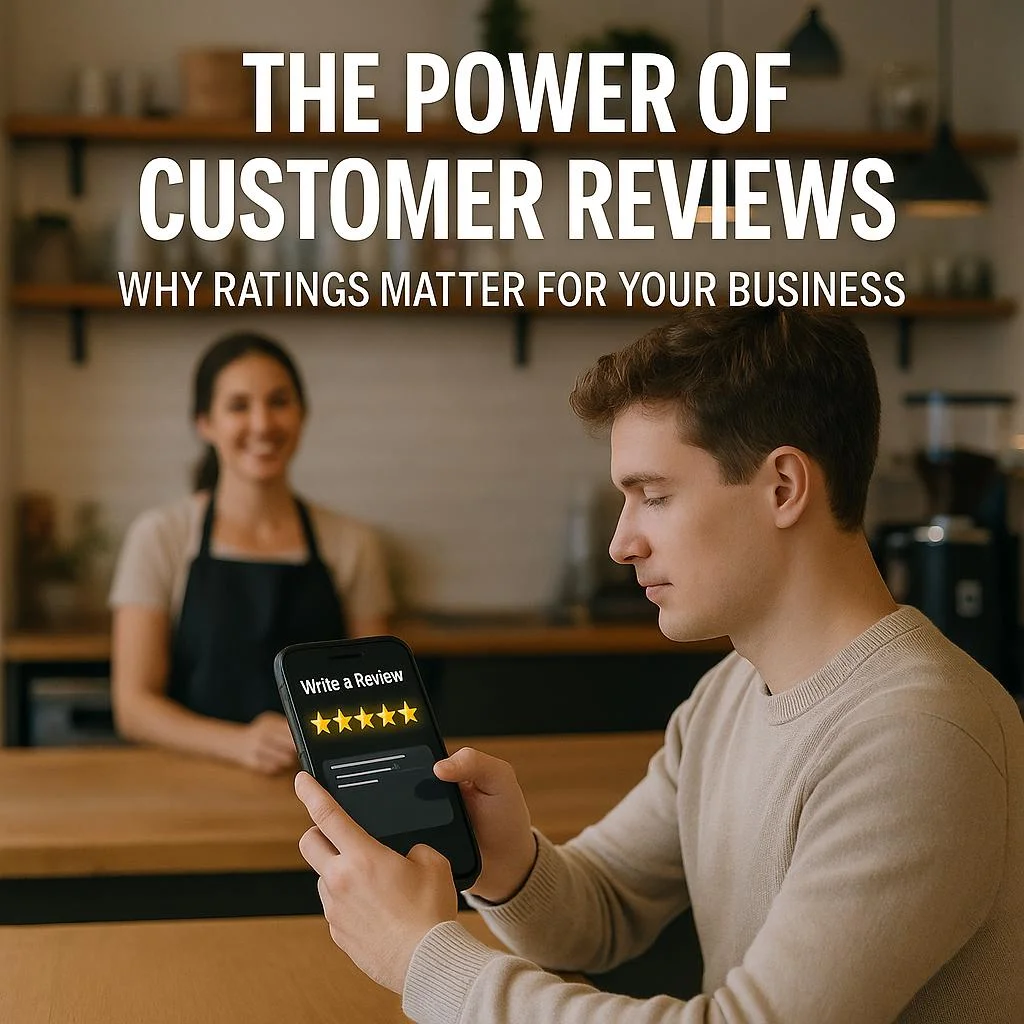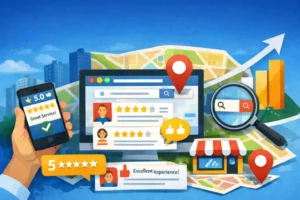Table of Contents
ToggleYou know what’s the next best thing after a trending product? No guesses, it’s the trending reviews all over the internet raving about the product, or if the brand’s not fortunate, the trashing reviews. Customer reviews have indeed become a global phenomenon. These days, products are not the only thing people watch; it’s also the opinions surrounding the product. It doesn’t matter if it’s a product, a service, or a small assistance; reviews are a go-to for the common man to decide on the right pick. The internet also calls it by a fancy name – the ‘buzz’. We’re talking about that endless scroll of online chatter, those shiny five-star ratings, emotional paragraphs, emoji-bombarded rants, or dramatic one-liners that either glorify or completely tarnish a brand’s soul.
It’s funny and fascinating to look at from the other end. But if you are running a business or leading a brand, you ought to know the importance of customer reviews and how they influence buying decisions. Platforms like Amazon, Yelp, and especially Google reviews for businesses are filled with real opinions from real people. But out of all these, Google reviews really stand out. Why? Because Google is where most people start their search. It is simply synonymous with ‘finding something’. Whether a person is looking for a simple coffee shop or the best dental clinic in town, chances are they will Google it first. That means the reviews that show up on your Google Business Profile are often the first and only ones people read before making a decision. There’s also the process of ranking your business according to the SEO that you do on your page (pretty complex though). Amazingly, 95% of shoppers read reviews before making a purchase, and 98% check reviews for local businesses. This makes customer reviews a powerful tool for shaping business success.
Old vs. New: Reviews Then and Now
Do you think this phenomenon always existed? Reviews in the form of ratings and feedback forms never did. But the idea of reviews? Sure. Back in the early days, people used to talk to each other. There was community gossip and village talks where people shared news of products they liked and disliked. But the disadvantage was that word of mouth spread very slowly. A very few trusted voices shaped opinions. There was no way to know what strangers thought, no easy comparison, no instant rating. Businesses largely controlled their narrative through posters, banners, and maybe a radio jingle or two. In traditional settings, the reach was very limited. But now, the scenes have changed.
Fast-forward to the modern world, where online reputation management has become a necessity rather than a routine requirement. Here, all sorts of ratings and comments are online, instantly available. And over 90% customers read online reviews before visiting a business. Out of which, Google reviews for business plays a massive role, where above 80% customers use these to judge the product and company, and more than half of them trust a star rating only if there are sufficient reviews in favour. The maths is very interesting. Like a review written at 11 PM in Mumbai could influence a buyer in Delhi, Bangalore, or even London by morning. We’ve gone from whispered suggestions to digital loudspeakers.
The Real Case-Study – Glossier
This was a brand launched in 2014, which is now considered one of the most reliable and successful beauty brands. Do you think their marketing budget was so expensive to get major returns? You are wrong. Glossier was never launched like a traditional beauty brand that depends on heavy endorsements or TV ads. Instead, its founder, Emily Weiss, started pushing Glossier with a blog where she interviewed real people and encouraged them to share their beauty routines. Over time, she noticed a recurring theme: people trusted other people’s reviews more than brands. This insight then became the foundation of Glossier – a brand that was built with and for its customers, using opinions as a strong fuel. Later, many brands started following this path, encouraging their target audience to leave their feedback (good or bad) so they reflect transparency and gain the trust of the audience.
How Ratings Shape Brands and Business
Even when reviews don’t directly boost sales, they still influence your brand in many ways:
- Boosting Trust
Brand reputation doesn’t just come from quality products. Of course, it is ‘the’ deciding factor. But it also comes from the fact that people trust what others say about you. It’s simple – people follow people. Hence, it gives a boost to the credentials of a brand. Nearly three-quarters of consumers say they trust companies more when they see positive reviews.
- Increasing Visibility
Search engines are, by now, fed up with user-generated content. They love and crave fresh content. Hence, it’s on the lookout for original, brand-new Google reviews for businesses. The more reviews you have, the more active your business appears online. This helps in improving your search rankings, making it easier for potential customers to find you.
- Building Brand Image
You have a great customer service team. Your products are doing wonders. Your whole marketing strategy is wonderful. But still, it doesn’t reach the right people. That’s because you have not formed a great impression in front of your target audience. A 5-star boost can mean more brand visibility, better brand image and more revenue.
- Gaining Insights & Influencing Purchase Decisions
A product with 500 reviews and a 4.5-star rating is more likely to be purchased than a product with no reviews at all, even if it’s cheaper. People rely on others’ experiences to avoid risk. Be it trying a new restaurant, buying electronics, or booking a service, ratings often tip the scale.
- Influencing Investment
Google reviews in the long run become detrimental to stakeholders or investors to look into the brand and learn more about the brand’s real-world performance and the potential for it to perform well in the future.
Top Benefits of a Review Management System
Reviews shouldn’t be sidelined. They should be taken care of and nurtured in the right way to get insights for your brand, build business action plans and even improve your products. One major step towards gathering these reviews is to bring in an online reputation management system. The benefits are varied. To start with, there will be a faster feedback loop where collecting feedback becomes way easier and smoother right after a sale gets honest reviews. Then there’s reputation monitoring, i.e., tracking reviews will help spot issues early and show that your brand is very responsive, which in time will build trust. A good rating can also give a 10% boost to search rank. They also let you change services based on real customers’ experience. This supports better online reputation management.
Thanks to ReviuAI, you can now manage customer reviews at ease, without any stress and also get more star ratings on Google. ReviuAI helps buying decisions, shapes reputation and fuels growth for your brand. If you are a company or a brand, or even an individual who hasn’t used review management systems before, then ReviuAI is the easiest ‘no-nonsense’ system to kick things off!
FAQs
- How many reviews do I need?
At least 20 on Google to get started and build trust.
- Should I reply to negative reviews?
Absolutely. Customers expect quick replies. It shows that you care. 5
- Do fake reviews hurt me?
Yes, some sites can detect fraudulent reviews. Honesty is the key to building a good brand.





